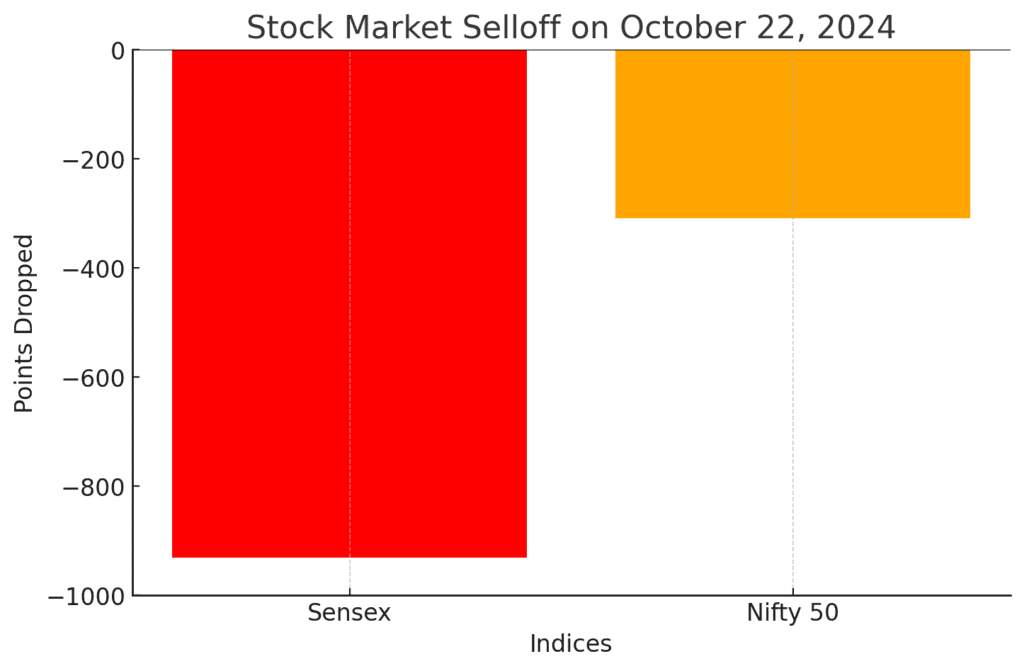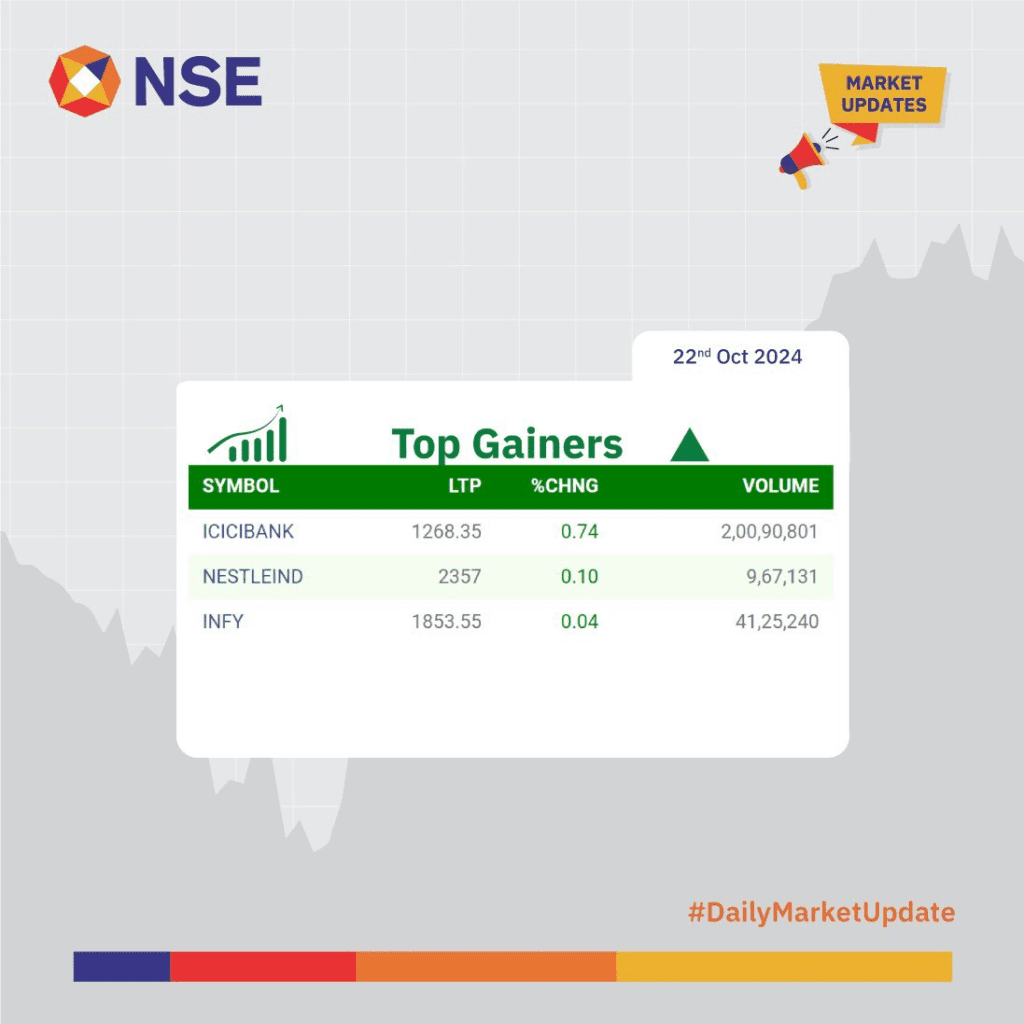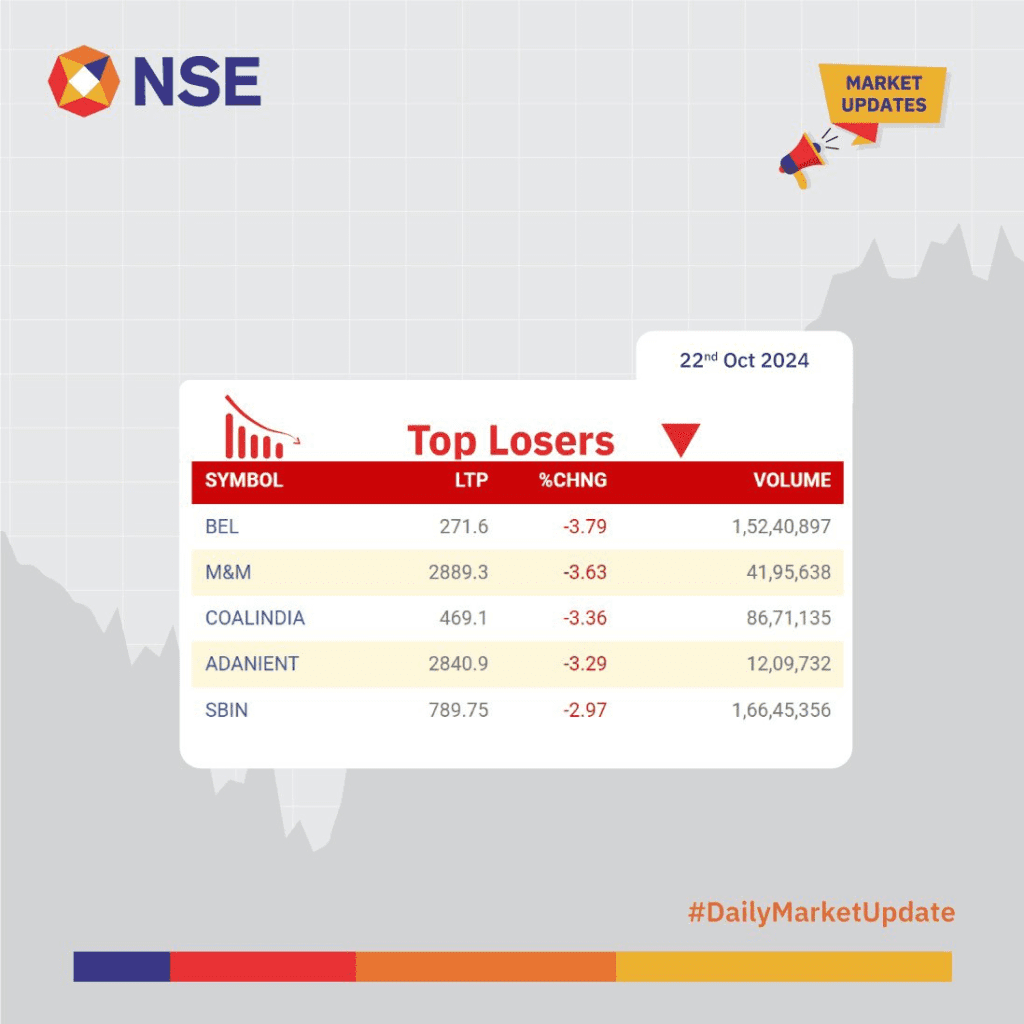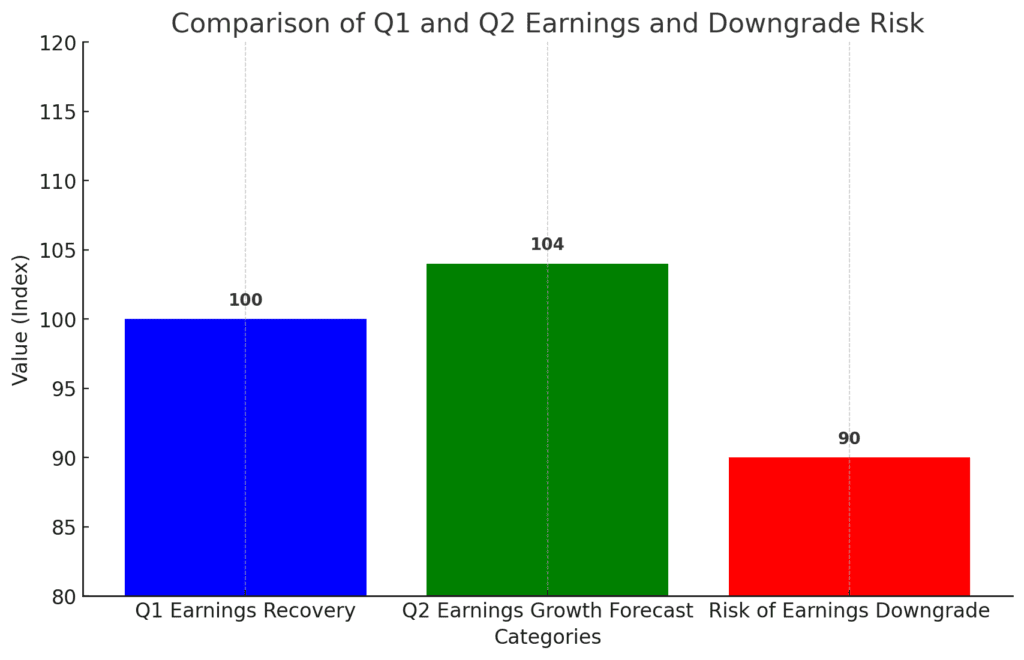Stock market Crash today: The Indian stock market saw major selloffs as the Sensex and Nifty 50 tumbled over 1%, while mid and small-cap indices plunged up to 4%. This led to a ₹9 lakh crore drop in market capitalisation in a single day.

On Tuesday, October 22, a strong wave of selloffs hit the Indian stock market, pulling down the benchmark indices. The Sensex dropped by 931 points, or 1.15%, to close at 80,220.72, while the Nifty 50 fell 309 points, or 1.25%, ending the day at 24,472.10.

The mid and small-cap segments took an even harder hit, with the BSE Midcap index falling by 2.52% and the Smallcap index crashing by 3.81%. The total market capitalisation of BSE-listed companies dropped to ₹444.7 lakh crore from ₹453.7 lakh crore in the previous session, wiping out ₹9 lakh crore of investor wealth in just one day.

Only three stocks—ICICI Bank (up 0.74%), Nestle (up 0.10%), and Infosys (up 0.04%)—managed to close in the green within the Nifty 50 index.

Sectoral indices saw sharp declines, with Nifty PSU Bank plunging 4.18%, Realty down 3.38%, and Metal falling 3%. Nifty Auto, Media, Consumer Durables, and Oil & Gas each dropped by over 2%, while the Nifty Bank index fell 1.36%, and the Private Bank index slipped 0.97%.
Ajit Mishra, SVP of Research at Religare Broking, noted that the Nifty 50 has now corrected by around 7% from its all-time high, approaching a key support level at the 100-day exponential moving average (DEMA) of 24,485.
The outlook points to further downside, especially in the midcap and small-cap segments. The next major support level is around 24,000 on the index, with resistance likely between 24,700 and 25,000 in the event of a rebound. Ajit Mishra advises traders to adjust their positions accordingly and avoid adding to losing trades.
Stock market Crash today: What drove the market down today?
Experts attribute the market’s decline to heightened geopolitical tensions, uncertainty surrounding the upcoming 2024 US elections, and continued selling by foreign portfolio investors (FPIs).
Additionally, lackluster earnings for the September quarter and the Indian stock market’s stretched valuations are contributing to the downward pressure.
Here are five key factors behind the market slump:
Tensions in the Middle East:
Ongoing tensions in the region continue to unsettle investors. As per a Reuters report, ‘Hezbollah claimed to have fired rockets at two bases near Tel Aviv and one west of Haifa on Tuesday morning, just hours before US Secretary of State Antony Blinken arrived in Israel to push for a ceasefire.
Uncertainty Surrounding the US Presidential Election
The close race in the upcoming US presidential election is adding to market jitters. A recent Reuters/Ipsos poll reveals that “Democratic Vice President Kamala Harris holds a narrow 3-percentage-point lead over Republican Donald Trump, as both candidates vie for victory in the November 5 election.” The outcome of this election is likely to influence global market sentiment. While a significant change in India’s context is not anticipated, it could notably impact India-US bilateral relations in areas like defense, trade, and strategic sectors.
Stretched Valuations
Despite the recent market correction, experts emphasize that the current valuation of the Indian stock market remains high, which may have triggered profit booking. According to Trendlyne, an equity research platform, the Nifty 50’s current price-to-earnings (PE) ratio is just above 23, surpassing its two-year average PE of 22.2.
Sustained Foreign Capital Outflow
Foreign Portfolio Investors (FPIs) have been actively selling off Indian equities this month. In October alone, FPIs have withdrawn a record ₹82,479 crore from the Indian market, according to Trendlyne data, marking the highest monthly outflow on record. The primary driver behind this significant foreign capital outflow appears to be the ‘sell India, buy China’ strategy, gaining traction after Beijing announced various stimulus measures to boost its economic growth.
Foreign investors are increasingly turning to the Chinese markets, driven by a significant valuation gap compared to the Indian market.
Prashanth Tapse, Senior VP (Research) at Mehta Equities, commented, ‘There has been no relief from Foreign Institutional Investors (FIIs) selling local equities this month, which is creating uncertainty among domestic investors. Additionally, foreign investors are moving away from Indian equities to invest in relatively cheaper markets like China, particularly following the recent stimulus announcement by the Chinese government aimed at revitalizing its slowing economy.’
Unimpressive Q2 Earnings

The earnings for India’s corporate sector in the September quarter have been mixed, raising concerns about potential future downgrades. Experts note that the recovery in corporate earnings for Q2 has fallen short of expectations compared to Q1.
Vinod Nair, head of research at Geojit Financial Services, stated, “We anticipate a 4% quarter-on-quarter growth in PAT for the Nifty 50. The fear of earnings downgrades is becoming increasingly real. We remain cautious in the short term due to the risks associated with potential downgrades in corporate earnings. High global inflation is affecting operating margins, and there is a possibility that India may underperform in the global market, driven by a shift in investment funds.
